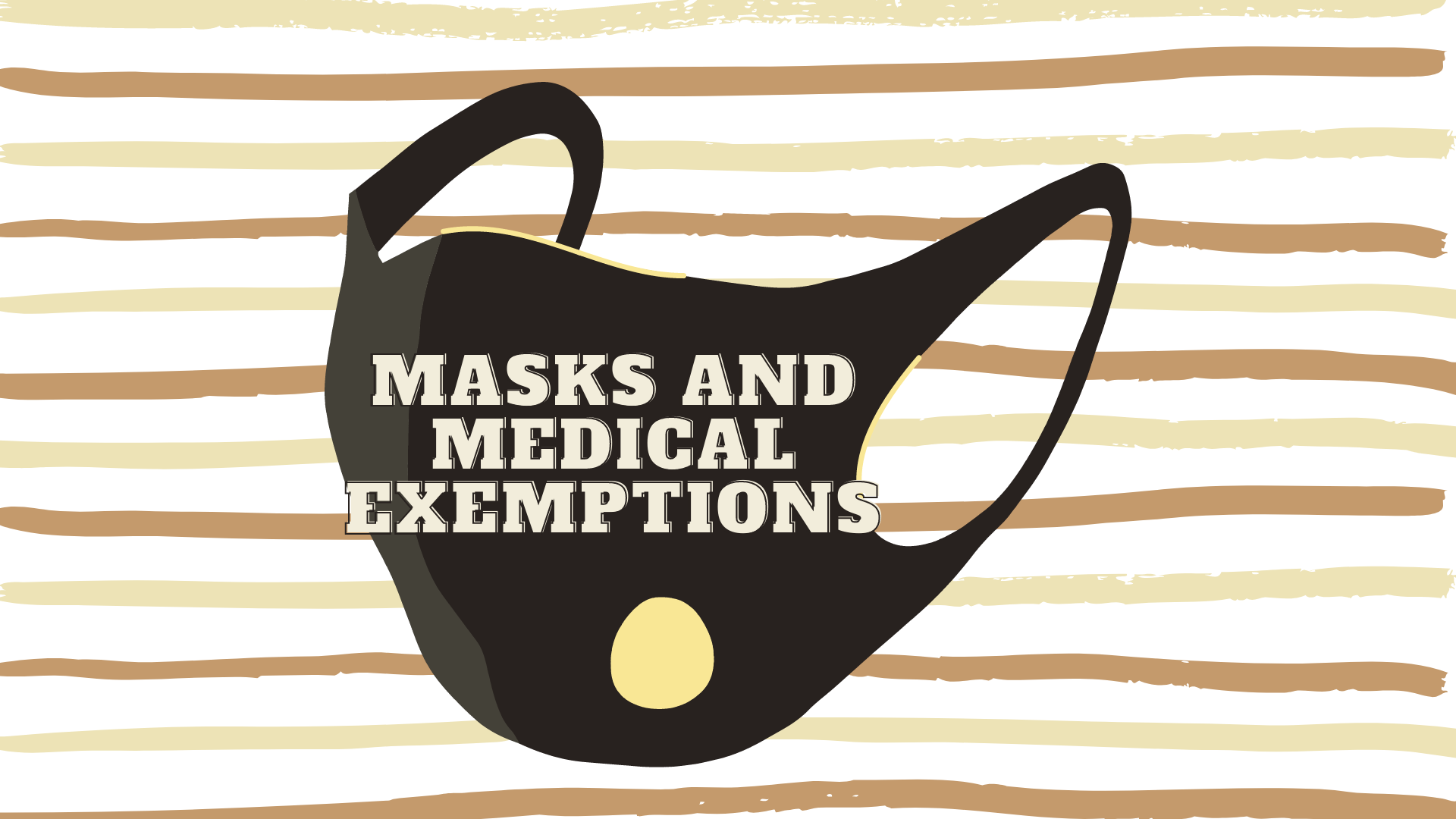Medical exemptions for masks: when are they appropriate?
Masks have become the norm around campus, with requirements enforcing students to don them while they are there. There are few exemptions that exist for this regulation.
According to Dr. Claudette Palmer, head of Disability Services, “there has to be some very detailed medical documentation for one to be excluded from wearing a mask.”
If students are unable to wear a face-covering due to a disability, they will be required to wear a face shield, according to Dr. Palmer.
The Center for Disease Control (CDC) recommends that all persons over the age of 2 wear a mask in public settings and while in the company of anyone who does not reside in their home, however, they “recognize there are specific instances when wearing a mask may not be feasible.”
The CDC offers some alternatives on their website that should be used when facial coverings are not possible.
Some instances where face coverings may be exempt include people who are deaf or hard of hearing as well as their caretakers, those with severe mental or developmental disabilities who may have challenges wearing a mask, anyone with severe asthma or COPD, where face coverings hinder breathing; or PTSD, where face coverings may trigger past trauma.
Face masks should not be worn when engaging in high-intensity activities, such as running, as it will increase difficulty breathing.
Masks are critical in preventing coronavirus.
For further information on qualifications for face-covering exemptions, contact Dr. Palmer with Disability Services.





